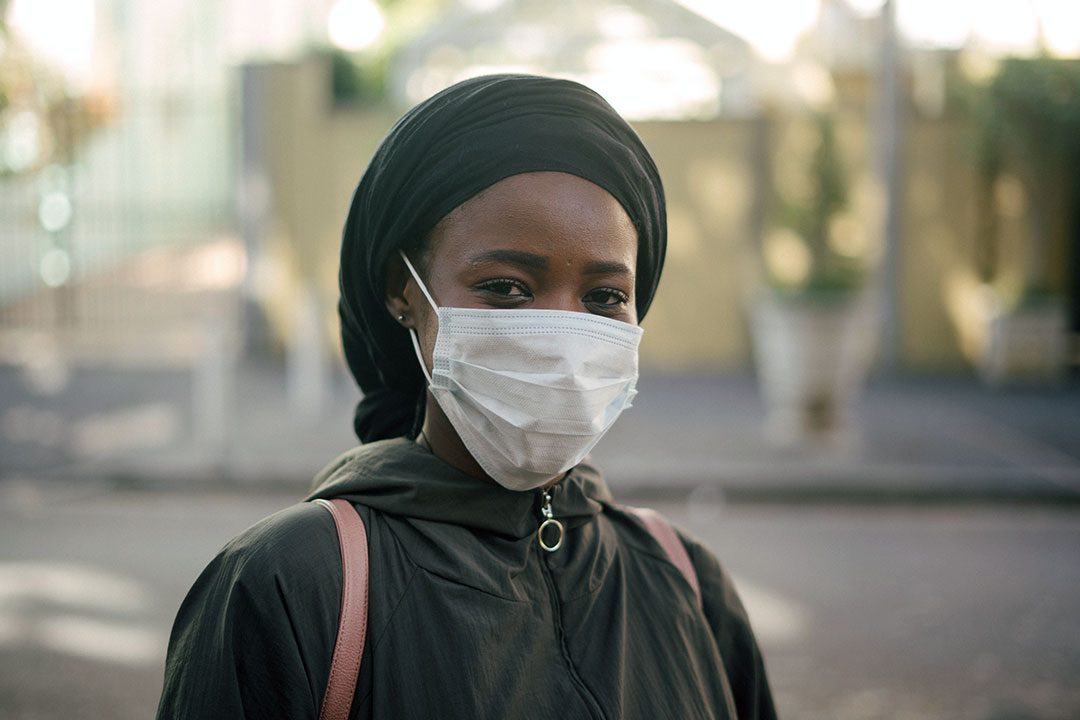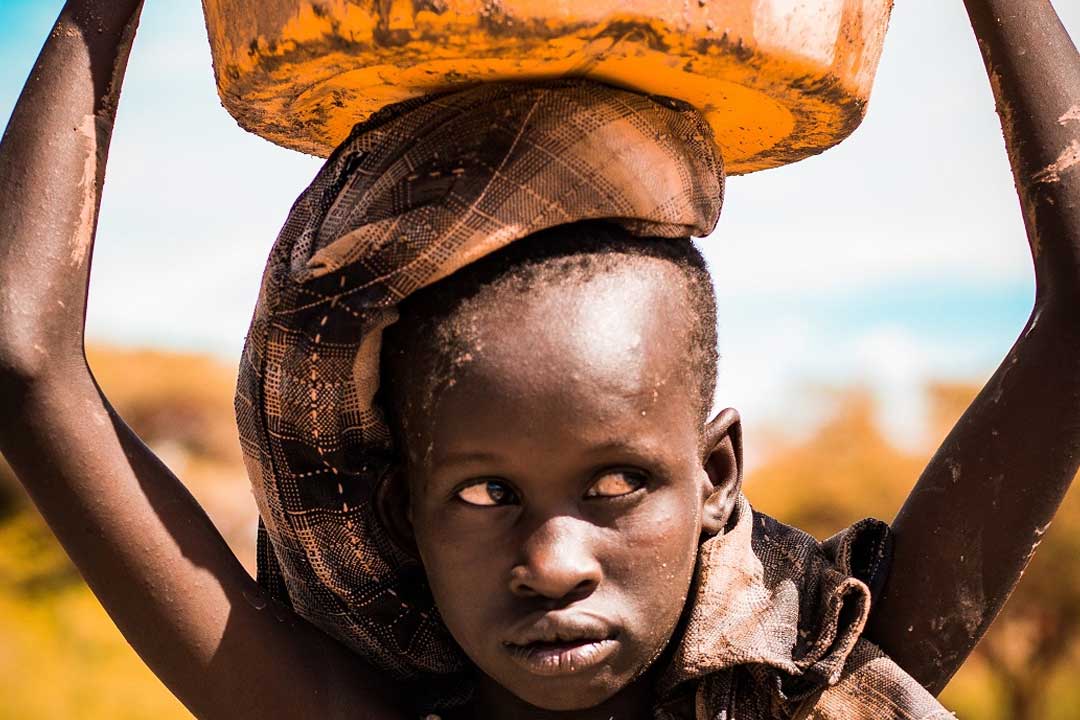
Platform for Labour Action (PLA) is a National Civil Society Organization that was founded in the year 2000. PLA is focused on promoting and protecting the rights of vulnerable and marginalized workers through empowerment of communities and individuals in Uganda.
21,463
Lives impacted
22
years of service
Our impact; stories of change

- Details
- Category: Blog
As the world prepares to commemorate the International Labour Day tomorrow (May 1), several workers around the world are distraught and traumatised by socio-economic menace that Covid-19 pandemic is leaving in its wake.
And more than ever before, the Covid-19’s depressing effects have ignited a serious parallel global debate as to whether or not employers and employees will survive the major crisis and if yes, what major steps could be implored to cut costs during the struggle to meet employees’ financial and statutory obligations.
According to the initial assessment of the impact of Covid-19 by the International Labour Orgnisation, on the global world of work, the effects will be far reaching pushing almost 25 million people out of employment, underemployment and working poverty unless a decisive, coordinated and immediate response is adopted globally.
Unfortunately for many companies world over, laying off workers during a crisis like this has proved the most convenient way stereotypically geared towards the ‘cost cutting reflex’. And indeed, this would be understandable bearing in mind the effects of Covid-19 on the wider economies; however, the spirit and the methods with which the employees are laid off defeats its purpose and further burdens and marginalises the already distressed employees, especially in these turbulent times.
While we are cognizant that certain groups of employees have been disproportionately affected by the current job crisis, majority of the workers in Uganda that are headed for tougher times predominantly include those in less protected and low paid jobs – particularly the young and the elderly, the sick, women as well as the migrant workers.
This, therefore, calls for pragmatic strategies by both the employers and the government that emphasise what needs to be prioritised while interrogating other options to reduce costs such as working half-time, unpaid leave agreeable by employees, halting bonuses, bans on overtime, and other cost cutting measures that may deem fit.
This, in turn, would not only make termination of contracts as a last option but also ensure that many employees are not left to a second- or third-guess on what lies ahead of them – and instead, appreciate the current financial health of their firm, factory, or organisation.
According to the Organisation for Economic Cooperation and Development, the global economic growth rate is expected to drop to 1.6 percent from the 2.9 per cent that was recorded in 2019 as a result of the economic effects of the Covid-19.
This is mainly due to the demand and supply shock across the globe that has seen many advanced economies, including the US and China, register negative growth because of suspension of economic activity as well as making workers stay at home in order to contain the virus.
Whereas Uganda’s macroeconomic outlook for the current Financial Year 2019/20 and medium term had been projected to grow by 6.3 per cent, this is very unlikely due to the widespread economic effects arising from the
Covid-19 pandemic and the drastic measures adopted globally and domestically to curb the crisis.
The Ministry of Finance Planning and Economic Development recently disclosed that Uganda’s growth projections for the financial year ending June 2020 had been revised downward from 6-5 percent, with imports expected to decline by 44 percent over the next months to June 2020. This may push a number of Ugandans below the poverty line by 780,000 in the best-case scenario or 2.5 million in the worst-case scenario.
Suffice to note that some of the preventative measures to the COVID-19 by the Government of Uganda have also systematically affected the world of work in both the public and private sector. Literally, apart from the essential staff in the essential service sectors, majority of the workers have been sent home indefinitely while others are under strict guidelines to work from home amidst a lot of uncertainty as to whether their jobs were guaranteed after the crisis or not.
And yet, there are those women and men with stringent instructions to remain at their workplaces through the night in order to observe curfew schedules. These and more have grossly continued to violate some of the workers’ rights across the divide.
As Guy Ryder, director-general of the International Labour Organisation, said; “this is no longer only a global health crisis, it is also a major labour market and economic crisis that is having a huge impact on people.”
The much needed response to the Covid-19 in the labour sector globally must particularly enforce social dialogue capable of facilitating social protection, supporting employment retention (short-time work, paid leave, and others subsidies) and financial tax relief, including micro and small medium-sized enterprises.
The crisis we are in and the projected worse times ahead also call for more fiscal and monetary policy measures to support the specific economic sectors.
And while Ugandans live under the lockdown for unspecified period of time during the pandemic, they ought to look out for where and who to anchor their hope for survival as the world continues to wrestle down the socio-economic effects of this invisible enemy.

- Details
- Category: Blog
BACKGROUND
The World Health Organization (WHO) declared corona virus commonly referred to as COVID-19 as a pandemic on March 11th 2020 a virus that first surfaced in a Chinese seafood and poultry market in the late 2019[1] . Governments across the globe have undertaken robust measures in an attempt to contain the spread of the virus. Uganda registered the first positive case of COVID-19 on March 21, 2020, and as of 27th May 2020, the cases had risen to 28 1; 69 recoveries and no deaths[2].
Upon registering the its first case and the subsequent rise in the number of cases of COVID-19, restrictive measures in addition to those already issued on 18th March 2020 were issued including suspending of all public transport means including buses, taxi, coasters, passenger trains, tuku tuku and all boda boda were; suspension of the sale of non-food items in markets and acreds, introduction of curfew hours.
These measures have since affected the populations diversely and differently. According to the International Labour Organization, the crisis has already transformed into an economic and labour market shock, impacting not only supply (production of goods and services) but also demand (consumption and investment).[3] The economic impact of the movement restrictions, lockdown, and halting of economic activities has both immediate and lasting implications for Ugandan families, particularly for the poorest and most vulnerable[4].
Despite the pandemic creating similar public health and economic concerns across the country, not everyone is equally susceptible to being infected or suffering the consequences of the crisis. DWs face a disproportionate vulnerability towards the virus, in addition to the economic burdens and risks in the wake of COVID-19.
According to a 2017 PLA Survey Profiling Domestic Work and Its Socio- Economic Contribution at Household Level and Economic Development of Uganda, Domestic Workers (DWs) are a constantly growing section of workers in the informal sector of urban Uganda representing 93% women between 15 to 30 years. They work in private spheres and thus they are invisible and often susceptible to violence. Migrant DWs are often mandated by the live-in arrangement. Live-in domestic workers face increased abuse, often gendered. It comprises assault and harassment, sexual exploitation, physical abuse, denial of resources, opportunities, and services.
INTRODUCTION
Domestic workers have and are suffering significantly from COVID-19. Starting from a weakened position, they find themselves among populations most vulnerable to the crisis. Engaging in domestic and care works puts DWs at the forefront of maintaining livelihoods and economies, and at a higher risk of both being affected by the pandemic and the policy responses to the pandemic, such as border closures, lockdowns, and curfews.
Recognizing that the pandemic has social, economic, and legal impacts, this brief lays out the contexts that DWs are currently navigating. It assesses how they have been affected by the spread of the virus and government responses. Finally, it provides recommendations aimed at improving the situation of DWs which would alleviate longer standing labour and gender inequalities within the domestic work sector.
HOW COVID-19 HAS AFFECTED DOMESTIC WORKERS
Generally domestic workers are now faced with multiple vulnerabilities and battles in the wake of COVID-19;
- Domestic workers face or have been terminated from their employment and unpaid leaves, as they are no longer allowed within the households of their employers. With lockdowns and curfews, live-out domestic workers cannot easily travel to and from work.
- Salary cuts or nonpayment of wages: Even when DWs remain employed, they are suffering from salary cuts just like other workers and denial of payment. DWs have been given hard options by some employers during this period to remain at the employer’s home without pay or to go back to their home and in the absence of public transport; the latter is not an option for them. The decrease of income is met with an increase in the price of goods and services. DWs find themselves ill-equipped to endure the pandemic in the absence of radical changes to their situation.
- Live-in domestic workers face increased and uncompensated loads of labor, and sometimes violence. The spread of COVID-19 increased the forced and excessive load of domestic work due to the domestic confinement and social distancing. While the ILO on Forced Labour Protocol of 2014 requires the prevention of forced labour, and recognizes that “certain groups of workers have a higher risk of becoming victims of forced or compulsory labour, especially migrants, “it is difficult to ensure that DWs are not forced to work under the lockdown. It is especially difficult as their workplace is a “private” household.
- High risk of infection: DWs are often not provided with protective gear by their employers. Worse, they are at risk of contracting the virus from their employers who do not respect quarantine measures.
- Forced quarantine of DWs with their employers; Some DWs have been forced to quarantine with their employers and others have been locked out of their countries given the movement restrictions internally and globally. The logic of the quarantine assumes the availability of accommodation, means of sustenance, and safety of households, all of which are often unaffordable to DWs. In countries like the Middle East, where majority of Ugandan women and youth are employed as domestic workers violence must have escalated, violation of rights well knowing that the movement restrictions cannot enable the domestic worker to leave the household.
- Awareness campaign and services oftentimes do not reach DWs due to language and technical barriers especially during this time when their employers are at home and thus they are unable to access and use information channels like Radio and Television. Social media platforms that would have served in the alternative are also not an option for them because they cannot afford to pay for data given that they are not being paid or receiving less which are using to maintain their dependants at the moment.
- Most DWs cannot access governmental relief packages and subsidies, depending on multiple factors such as the governments’ recognition of the informal sector, regular/irregular employment, and the documentation status of the workers.
- Domestic workers are also not provided with medical care and neither are they insured by their employers against occupational injuries and diseases. The employment contracts, if existent, do not consider sickness an occupational hazard or disease. Their contracts are terminated under COVID-19 because of the suspected or feared and non-confirmed infection; In any event that the domestic worker due to lack of protective gears contracted COVID-19 at the work place and subsequently succumbs to it, there will be no compensation.
RECOMMENDATIONS
- The Government needs to actively work to alleviate the systemic inequalities for DWs, which are now intensified by the pandemic. The need to regulate the sector is very critical moving forward. The Ministry o Gender Labour and Social Development and parliament should ensure that the domestic work sector is regulated in a manner to reinforce the security and rights of domestic workers.
- Awareness raising on the pandemic and the health concerns need o categorically target vulnerable invisible groups like the DWs. The information needs to be translated in the different languages. This could be through mobiles SMS awareness targeting all the registered mobile numbers.
- Employers are called upon to provide sanitizing materials and protective gears to domestic workers as well as respect the measures in place so as not to contact the virus and pass them over to their workers at home as well as the family members.
- The Domestic Workers Association needs to support fellow domestic workers to convening interactive sessions with the members so as to counteract the psychological and emotional effect caused by COVID-19.
[1] European Center or Disease prevention and Control, Rapid risk Assessment 2020
[2] Ministry of Health Press release Coronavirus updates 27th May 2020
[3] International Labour Organisation, Why are labour markets important?The Great Recession and other crises have shown that we can prevent the risk of a vicious downward cycle only through large-scale, coordinated and decisive policy measures.
[4] UNDP Social economic impact of COVID-19 in Uganda Scenarios for short, medium, and longer-term socioeconomic impacts April 2020
- Details
- Category: Blog
Make Social Protection accessible in the informal sector
Betty Iyamuremye
As the world prepares to commemorate the World Women’s Day 2019, under the theme “Empowering women through innovative approaches to social protection; a prerequisite for inclusive and sustainable development”, it critical to note that the labour force in the informal sector stands at 90%, according to the Uganda National Household Survey, 2016/17 in Uganda.
Latest from our blog









